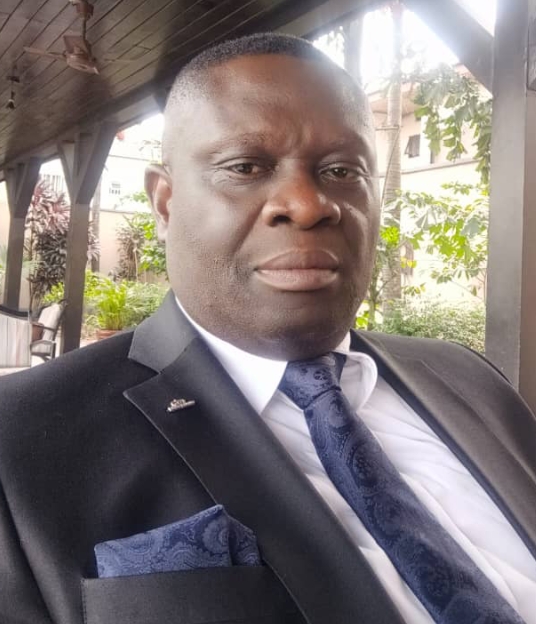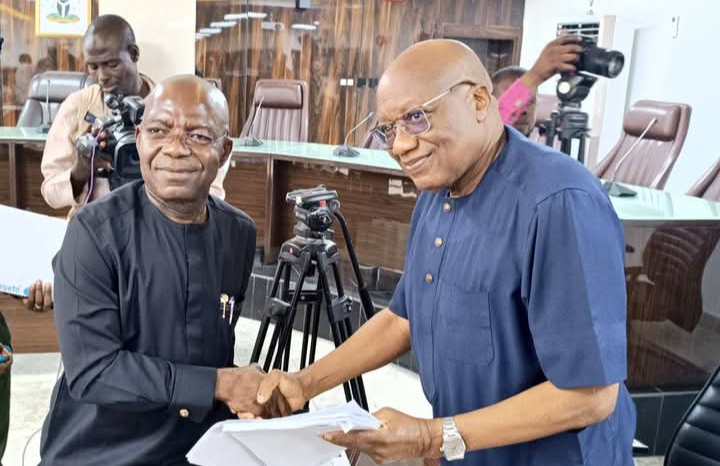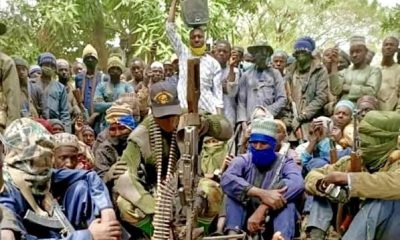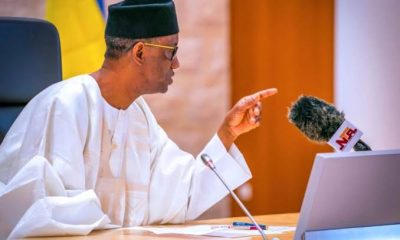News
Justice Delayed: The Imperative for Accountability in the Wake of Ibrahim Babangida’s Autobiography

By Dr Gabriel Nwambu
**Abstract**
The launch of Ibrahim Badamasi Babangida’s autobiography, “A Journey in Service,” on February 20, 2025, at the Transcorp Hilton in Abuja, marks a critical juncture in Nigeria’s political narrative.
While the book offers insights into Babangida’s life, his controversial past raises urgent questions about accountability, justice, and the prospects for Nigeria’s future.
As Nigeria seeks to grapple with its historical challenges, the call for Babangida to face consequences for his actions has never been more pertinent. This paper examines the need for accountability as crucial not only for justice but also for the integrity of Nigeria’s democratic foundation.
**Introduction**
Ibrahim Babangida’s persona as a leader encapsulates a troubling chapter in Nigeria’s history. Celebrated by some as a political strategist, his tenure as military head of state is also marked by egregious violations of civil rights and democratic principles. This analysis interrogates the implications of Babangida’s actions throughout his rule, particularly regarding deep-seated issues such as betrayal, the nullification of free elections, and the need for restorative justice in Nigeria.
**The Dark Legacy of Betrayal: The Execution of General Mamman Vasta**
A significant chapter in Babangida’s narrative is the betrayal of General Mamman Vasta, a man he once considered a closest friend. Their relationship, characterized by intimate gestures such as exchanging clothing, was shattered when Babangida accused Vasta of plotting a coup and ordered his execution. The pleas from respected figures in Nigerian society failed to dissuade Babangida from this decision, reflecting a chilling disregard for human life and friendship. The implications of this act extend beyond personal betrayal; they symbolize the treachery embedded within the political fabric of leadership in Nigeria, raising critical questions about loyalty and morality among those in power.
Babangida’s precarious ascent to leadership came through a coup d’état, overthrowing General Muhammadu Buhari, and establishing a regime characterized by manipulation and coercion. Despite ruling with an iron fist, he demanded respect as a democratically elected president, a title that contradicted the reality of his rise to power and governance. The duality of Babangida’s nature as both a strategist and a tyrant complicates the narrative, leading to a legacy fraught with contradictions and injustices.
**The Cynical Nullification of the 1993 Democratic Elections**
One of the most grievous acts of Babangida’s presidency was the denial of the results of the June 12, 1993, elections, widely regarded as the freest and fairest in Nigerian history, won by Chief Moshood Abiola. Nigeria had, for the first time, expressed its democratic will, and yet Babangida nullified the election, leading to a national crisis and significant unrest. The repercussions of this decision continue to resonate across generations, undermining trust in democratic processes and institutions. The tragic outcomes included the untimely deaths of pro-democracy activists, such as Kudirat Abiola, and an atmosphere of political hostility that set Nigeria on the brink of civil strife.
The key players and contributors to this crisis, including Babangida himself, are now deceased, including figures like Professor Humphrey Nwosu and General Sani Abacha. As Babangida now seeks to narrate his perspective from a wheelchair, the timing of the revelations seems more an exercise in self-justification rather than a sincere pursuit of truth and reconciliation.
**The Need for Accountability: A Call to Action**
As Civil Rights Organizations advocate, “A New Nigeria is Possible.” This ideal hinges upon confronting the past and demanding accountability.
Babangida’s actions warrant scrutiny not for the purpose of vengeance but as a vital component of a healing process that Nigerian society so desperately needs. It is essential that those who wielded power and exercised it with impunity face the full weight of the law. Only then can Nigeria embark on a path to genuine democracy, lifting the embers of a fractured past toward a cohesive future.
Moreover, the staggering sum of ₦17 billion raised during the launch of Babangida’s autobiography in a country struggling financially highlights a disconnection between wealth and accountability. This disparity poses a fundamental question about the values that the Nigerian elite perpetuate and the societal implications of such actions.
**Conclusion**
Babangida’s autobiography opens a window into a complex saga of Nigeria’s history, intertwining personal narrative with profound political consequences. However, it does not absolve the former leader from the weight of his legacy, marked by betrayal and the systematic dismantling of democracy. As Nigeria looks to reforge its identity and re-establish its governance structures, it stands as an imperative for the nation to confront its past injustices head-on. To pave the way for a better future, Ibrahim Babangida must face the law, not merely as a pursuit of justice but as a cornerstone of Nigeria’s commitment to democracy, accountability, and human rights for all. Until that day arrives, the specter of an unaddressed past will continue to haunt Nigeria’s political landscape.
Nwambu Gabriel, Ph.D.
News
SAD! APC lawmaker dies while asleep

The lawmaker representing Kaura Namoda South Constituency in the Zamfara State House of Assembly, Aminu Ibrahim Kasuwar-Daji, has died.
It was gathered that the lawmaker passed on in his sleep during the early hours of Wednesday.
Aminu Ibrahim Kasuwar-Daji’s sudden death came as a shock to many in the state, especially his colleagues and political associates.
The All Progressives Congress (APC) in Zamfara, the party under which he was elected, expressed deep sorrow over his passage.
Members of the party, including the State Working Committee and other supporters, described his death as a great loss.
They said he was known for his dedication and honesty in serving his people.
His family, community members in Kaura Namoda South, and fellow lawmakers have been thrown into mourning as preparations for his burial began.
According to Islamic rites, he was buried today at 3:00 pm in his hometown of Kasuwar-Daji, located in the Kaura Namoda Local Government Area.
Many in the state have continued to express grief as they remember the role he played in representing the people and contributing to the work of the state assembly.
News
Just in: Sam Olumekun takes over as INEC’s Acting Chairman

Mr. Sam Olumekun has taken over at the Independent National Electoral Commission (INEC) as Acting Chairman.
Olumekun is INEC’s National Commissioner in charge of Information and Voter Education.
He performed his first duties today, receiving a high-level delegation of the Labour Party (LP) at the Commission’s headquarters in Abuja with other National Commissioners in attendance.
The delegation was led by Abia State Governor Dr. Alex Otti, who visited the Commission to discuss key developments within the Labour Party.
It was gathered that both parties engaged in discussions centered on enhancing collaboration and reinforcing democratic values.
During the visit, Governor Otti formally presented a Certified True Copy of the recent Supreme Court judgment concerning the party’s leadership.
He noted that the meeting was aimed at fostering clarity, mutual understanding, and institutional alignment regarding the Labour Party’s current structure.
Mr. Olumekun, the Acting INEC Chairman, reaffirmed the Commission’s unwavering commitment to neutrality, transparency, and the rule of law in the discharge of its constitutional responsibilities.
Recall that a viral WhatsApp message had indicated that Prof. Mahmood was sacked by President Bola Tinubu and replaced with one Prof. Bashiru Olamilekan.
“INEC Chairman Prof. Mahmud Yakubu has been replaced with Prof. Bashiru Olamilekan by President Tinubu,” the message, which had no attribution, read. However, both INEC and the Presidency debunked the widespread report.
Yakubu, who is rounding off his second tenure in office, is expected to exit the system towards the end of this year.
The process of appointing an INEC chairman is the President nominating a candidate and forwarding his particulars to the Department of State Services (DSS) for profiling.
After such screening, the President, thereafter, takes the name to the National Council of State for its advisory review.
Based on the outcome, the President sends the name to the Senate for screening and confirmation.
News
Crude oil prices slide further, now selling below $57

Crude oil prices have dropped below $57, following a previous rate of $59.78.
This decline coincides with the imposition of tariffs on several countries by US President Donald Trump.
A report from West Texas Intermediate attributes this price slump to consistent 6% reductions observed last week.
JPMorgan Chase & Co has warned that these tariffs could likely push both the US and global economies into a recession this year.
The financial institution explained that the tariffs, set to take effect this week, are expected to have widespread economic repercussions.
Market analysts and the business community have expressed concerns about the negative implications of these measures, predicting a slowdown in economic activities and a subsequent decline in oil demand.
-

 News11 hours ago
News11 hours agoBanditry:” I was chained for 32days while in their den, killed my wife as I watch-Nat’l Assembly DD narrates experience
-

 News7 hours ago
News7 hours agoPolice Inspector Slumps, Dies While Celebrating After Arsenal Wallop Real Madrid 3-0
-

 News12 hours ago
News12 hours agoUS revokes more than 500 foreign student visas
-

 News19 hours ago
News19 hours agoBandits have seized control of 64 communities in Plateau – Gov Muftwang
-

 News14 hours ago
News14 hours agoIbas picks administrators for 23 Rivers LGs(SEE list)
-

 Economy18 hours ago
Economy18 hours agoMobile Money transactions hit $1.68trn in one year
-

 News19 hours ago
News19 hours agoRibadu warns against ransom payment to terrorists, kidnappers, others
-

 News6 hours ago
News6 hours agoSAD! APC lawmaker dies while asleep

















